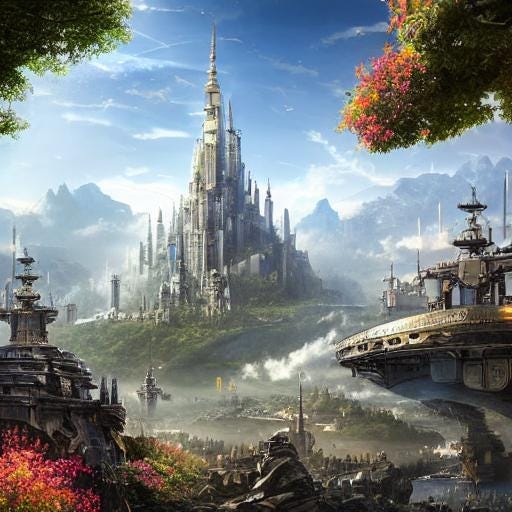Exploring the Balance: Between Utopia, Dystopia, and Protopia
Written on
Chapter 1: Understanding Utopia and Dystopia
In the realm of science fiction, the future is often depicted as a stark binary: a utopia or a dystopia. However, distinguishing between these two visions can be complex. Some theorists propose a third possibility: protopia. This concept might represent the future we are currently experiencing, a timeline we should feel fortunate to inhabit.
A Binary Perspective on the Future
Historically, futurists have typically divided their visions into two categories: utopian or dystopian. The portrayal of dystopian societies in popular media—like in The Terminator, I Am Legend, and Interstellar—often showcases a regression of progress, filled with images of desolate landscapes, conflict, and scarcity.
Yet, not all dystopian narratives are as straightforward as they appear. What may be a dystopia for some could represent a utopia for others. For instance, the characters in Blade Runner might find their lives satisfactory, while those in the Capitol from The Hunger Games likely feel similarly privileged. However, the majority within these fictional realms may experience quite the opposite.
Conversely, even visions of utopia can be misleading. Aldous Huxley's Brave New World illustrates a seemingly perfect society devoid of aging, crime, or illness. Yet, this so-called utopia strips away essential human experiences, leading to a dull existence for its inhabitants.
The distinction between utopia and dystopia may ultimately depend on personal values. If one views technological advancement as the primary indicator of progress, then films like Blade Runner or The Hunger Games may not be genuine dystopias.
Nonetheless, I argue that these societies are still dystopian because they are unsustainable. They teeter on the edge of collapse.
On the Brink of Collapse
The Capitol in The Hunger Games symbolizes a hub of wealth and technology, isolated from the impoverished districts that surround it. Although not explicitly stated, it is heavily suggested that the Capitol's riches are sourced from the exploitation of these districts.
History indicates that such a scenario cannot endure indefinitely. Genuine human progress is inherently linked to inclusive economic growth. This doesn’t imply that wealth must be evenly distributed, but rather that policies should aim to maximize opportunities for all individuals to engage in and contribute to societal advancement.
For the Capitol's prosperity to continue, it must integrate the districts into its growth—a reality that is clearly absent. The wealth and technology enjoyed by the Capitol's citizens are unlikely to sustain themselves for long. Extractive societies inevitably face their own demise. Perhaps the Capitol was already experiencing its final days, oblivious to its impending downfall.
If utopias are unattainable and dystopias depict dysfunctional societies on the verge of collapse, what remains is the notion of "protopia."
The Concept of Protopia
Coined by Kevin Kelly, "protopia" is neither a utopia nor a dystopia. It acknowledges that humanity's challenges remain unsolved but also recognizes that we are not on the brink of collapse. Protopia describes a society that continually strives to address its issues through gradual improvement. It embodies a growth-oriented mindset and a resilient spirit.
In many respects, protopia mirrors our contemporary world. Over recent decades, humanity has achieved remarkable advancements. We are more educated, living longer, and enjoying greater wealth than at any previous point in history. Increased political engagement has empowered more individuals to participate in a decentralized network of problem-solving.
The implications of this progress are profound. We have maintained a sustained human presence in space for years, travel across the globe occurs within hours, and each person carries a powerful supercomputer in their pocket, granting access to the entirety of human knowledge. Our capabilities now surpass those of historical monarchs. Despite societal challenges, we find ourselves in a protopian state.
A Precarious Condition
However, it's crucial to recognize that protopia is a delicate state. Rising populist and extremist movements threaten to reverse the advances that have brought us here. These forces could hinder or even halt progress, potentially leading to a regressive future. Should we succumb to extremist ideologies, a genuine dystopia could become our reality.

Chapter 2: The Future We Face
The first video title is "Utopia is Dystopia - YouTube," which explores the paradox of utopian ideals leading to dystopian realities. It questions whether our pursuit of perfection can ultimately result in societal breakdown.
The second video title is "Is Our Future Headed Towards a Utopia or Dystopia? - YouTube," which discusses the potential paths humanity might take and the implications of our choices.